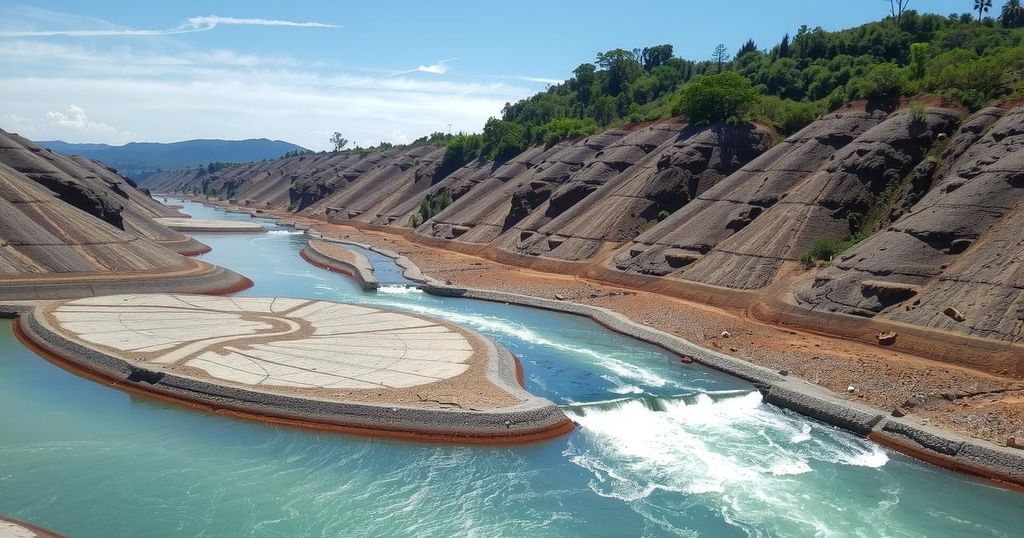Ecuador’s Energy Crisis: Drought Halts Hydropower Production and Causes Blackouts

Ecuador’s energy crisis has intensified due to a severe drought that has halted hydropower production, leading to daily blackouts lasting up to 14 hours. Economic losses are estimated at $12 million per hour, impacting businesses, schools, and essential services. Experts advocate for diversifying energy sources to mitigate vulnerability to climate change.
Ecuador is currently experiencing a significant energy crisis, exacerbated by a prolonged drought that has severely impacted its hydroelectric power capabilities. The nation, which heavily depends on hydroelectricity for its energy needs, is grappling with daily power outages that can last up to 14 hours. These interruptions have led to widespread disruptions in various sectors, including businesses and educational institutions, resulting in estimated economic losses of approximately $12 million for every hour of power outages.
As rivers and reservoirs continue to deplete due to the ongoing drought, experts emphasize that climate change is likely to further complicate the situation, rendering hydropower increasingly unreliable. They advocate for a strategic shift towards diversifying energy sources, incorporating alternatives such as wind and solar power to build a more resilient energy grid.
Former Ecuadorian President Lenin Moreno underscored the severity of the situation, stating that the primary issue lies in the country’s “excessive focus on hydroelectric energy,” which has rendered the power system particularly vulnerable to the impacts of climate change.
Ecuador has long relied on hydroelectric power for the majority of its energy production, positioning itself as one of the world’s nations most dependent on this renewable resource. However, the country’s geographical and climatic conditions make it particularly susceptible to droughts, which can drastically reduce water levels in reservoirs necessary for hydropower generation. The current drought is a stark reminder of the vulnerabilities associated with relying solely on a single energy source, a situation compounded by the broader implications of climate change.
In conclusion, Ecuador’s current energy crisis highlights the critical need for diversification in energy production as climate change poses increasing risks to traditional hydropower sources. As the country faces severe blackouts and economic setbacks, it is imperative for policymakers to invest in alternative energy solutions to ensure sustainable and reliable power for the future. This crisis serves as a cautionary tale for other nations similarly vulnerable to climate-induced energy challenges.
Original Source: www.dailyclimate.org






